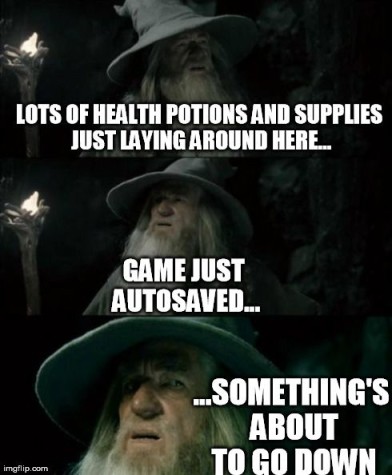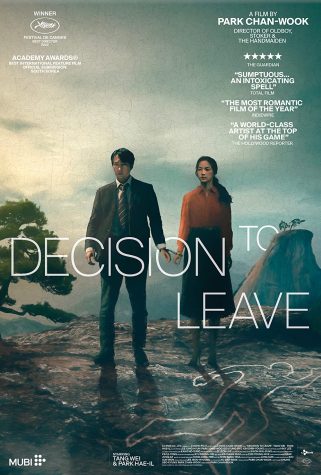Video games are more intelligent than we think
It’s something many of us have been told throughout our lives: “Video games will rot your brain.” But is it true? Do video games make us unintelligent zombies? How does one figure out the answer? The answer can be found in the video games themselves.

When you play video games, your mind is absorbing information that can improve it — and most of the time, you aren’t even aware that’s happening. Certain games exemplify that better than others. Take the Legend of Zelda (LoZ) franchise for example — this video game series is full of temples and enemies who all try to fight a left-handed, elf-like swordsman. Maybe that makes the game sound rudimentary and violent, but that’s because it’s only the surface of the game.
When you play LoZ, you realize each enemy has strengths and weaknesses, and each enemy, therefore, must be fought differently. Without realizing it, gamers playing LoZ are learning how to strategize and think quickly, using the protagonist’s attacks and various items accordingly.
Legend of Zelda goes beyond its enemies though, as each temple is riddled with puzzles. Not everything is eye level; some important tasks to advancing through the temple may be hidden underwater, on a roof, in pottery or even attached to an enemy. This teaches the player to think outside the box, and quickly, too.

One might ask, “But that’s in a game; how can I apply it in life?” Truth is, there isn’t much actual knowledge to be gained from video games — usually. Video games often improve cognitive abilities by training the brain to think quicker and make faster decisions. A recent study from University College London shows just this.
The study had three groups who played certain video games for specific amounts of time over the course of six weeks (less than 2 hours a day). They tested each group’s cognitive flexibility before and after the six weeks. One group played The Sims, a game that doesn’t require much strategy; their cognitive flexibilities levels didn’t really improve. A second group played Starcraft, a game where strategy is a necessity, and they showed a lot of improvement after word. The third group play a more complex version of Starcraft, and their cognitive flexibility improved the most out of all three.
Now you might be thinking: “OK, I get that video games can improve my brain, but why does that matter?” With today’s modern economy and technology, people with this cognitive power are valuable and sought after for their quick thinking under pressure.
Video games aren’t only a great source of brain training. Game Theory, a YouTube channel, demonstrates that when you apply science and logic to games, great things can be discovered. For example, they theorize that Nintendo’s Mario suffers from Anti-Personality Disorder based on evidence found throughout the Super Mario Bros franchise. To check out the channel to find out more, go to:
https://www.youtube.com/user/MatthewPatrick13/featured.
Video games go beyond improving brain power. For some, it’s a way of socializing. “I was in C Track, so I didn’t know very many people. Online games gave me a chance to make some friends and just meet people in general,” Sophomore Joshua Warner said. Some of his favorite games include Legend of Zelda; Twilight Princess, Star Wars Battlefront 2 and Portal 1 and 2.

Warner also shared the story of a Marine he met once through online gaming. “[He was] injured in live combat and was in therapy. He was paralyzed from the waist down. He was going absolutely nuts — he was … an incredibly active guy. He was talking about how happy he was just to have something to do, to go out and meet people.” Video games can have such a positive impact on people with disabilities or anyone who can’t do the things they love, which we sometimes take for granted.
Please note: All of this isn’t a reason to run off and play video games for three days straight, of course. Massive amounts of gaming can lead to sleep deprivation, splitting headaches and vision problems. There have been several cases of “video game addiction,” but it is not yet recognized as an official disorder. Video games should only be played in controlled amounts.







Justin shillito • Mar 19, 2015 at 6:30 pm
justin leonard argues that video games cause gamers to think critically. he claims that games can make increase cognitive function and flexibility. leonard develops this claim by stating that gamers must learn and adapt to different enemies and learn their weaknesses to destroy them within the legend of zelda games. leonard continues by using a study from university college london that shows how games can cause increases in cognitive flexibility depending on genre and difficulty. lastly the author tells us that science and logic can be added to games to discover hidden facts and meanings within them. the authors full purpose is to explain that video games don’t just “rot your minds”
did i properly explain your article
Mariah Garcia • Mar 19, 2015 at 3:34 pm
Justin Leonard argues that video games don’t just melt your brain, they help it become even stronger. He claims that video games can help you strategize and think faster. Studies at universities suggest that games do exactly what he says. Children have been studied by playing games. One group played the sims, another played worldcraft, etc.
Leonard develops this claim by first saying that if you play Zelda, you will learn how to strategize, think faster, and learn even more(depending on the game). Leonard jumps right into say that there have been many studies, as I have said earlier, with three video games. Basically it it really depends on what game you play. Lastly the author states that video games aren’t the only training for your brain.
Justin Leonard’s purpose is to tell student/parents that video games don’t melt your brain. In order for children to enjoy video games so your parents stop bugging you. Parents will start feeling better about their kids playing video games. Video games can help your brain become stronger, faster, etc. because certain games are difficult. This work is significant because people want to enjoy video games without worrying about their brains melting.
Do you agree that video games have a good impact on children?
Noah Dent • Mar 19, 2015 at 2:31 pm
In this article, Justin Leonard argues that video games aren’t as bad as they seem. He claims that when you play video games, you learn things that you may not realized you learned that help you in everyday life. Leonard develops this claim by first exclaiming examples of studies from the University College of London. Leonard also provided some information on a YouTube channel that explains other ways to think about and look at video games. Lastly, the author promotes that video games are also a way to socialize, giving a quote from a student. Justin Leonard’s purpose is to convince you that video games can have a positive outcome on your mind, and in order to do that he gave solid information and examples on how video games can improve mental agility. This work is significant for the parents that think video games are horrible.
Bradley Polancic • Mar 19, 2015 at 2:28 pm
Justin Leonard argues that playing video games are beneficial. He claims that playing video games regularly (but not too long) can sharpen decision making skills, strategy, and reaction speed.Leonard develops this claim by first declaring that a lot people are anti-video games because they rot the brain, but they’re not completely correct.Leonard proclaims that University College London have had a recent study about video games’ benefits. They had three video games, one took no strategy and no skill, on took some skill and strategy, and the last required much skill. After six weeks of playing (less than 2 hours each day) they took a test to see if there was any mental changes. The first had no effect at all, the second gave a small portion of mental sharpness improvement, and the last game gave much mental boosting.Lastly, Leonard tell us that video games will only help as long as you don’t play for too long. Too much can cause constant headaches, vision disorder, and insomnia.Justin Leonard’s purpose is to announce that video games aren’t so bad after all, in order to, encourage everyone to play some. This work is significant because a majority of people think that video games can the worst thing ever; but it turns out it’s truly not so bad after all.
Did my words explain your article correctly?
Carson Clancy • Mar 19, 2015 at 12:47 pm
Video Games Aren’t Bad
Justin Leonardo, argues that video games do not rot your brain. He believes it improves your brain. Video games are like vegetables ( they are good for you). Many people have thought that nerds(gamers) are so smart. Its because of this technique of learning while playing video games and not knowing.
He made his argument because he, himself plays video games too. Pretty much all guys play video games. The video game that he thought was the most helpful or gets you to learn more was the legend of zelda. The reason for that is because it has many items for specific reasons and there these emeralds in these pots.
This is relevant because there are many gamers in our period of time in this moment. Many guys at our school play video games and they would like to know that they are good for you.All the kids in our school has at least played an old version of a game or new.
Would you agree with me?
Gage Auge • Mar 19, 2015 at 12:42 pm
Justin Leonard states that video games are not as bad for you as commonly thought, and they can even make you smarter. He explains that these games often improve the player’s cognitive abilities and their ability to think quickly. Leonard builds his argument by describing how players must use quick and strategic thinking to solve levels and get through the game. He also includes details from a study done on this exact subject at the University College London. The study found that as games require more strategy and though, the players cognitive abilities grew and improved. Finally, the author brings up how gaming and technology can be combined to teach valuable lessons. All in all, Justin Leonard’s point in writing this article is to alert the public that, while some are, not all video games are mindless, and not all will “make the player’s brain rot”. He wants the reader to understand that these video games can have quite beneficial sides, some even educating the player. This article and the studies behind it are important because video games and alike have become such a huge part of not only our western culture, but the world.
Gage Auge • Mar 19, 2015 at 12:43 pm
Am I correct in my thoughts on this article?
Luke • Mar 19, 2015 at 12:42 pm
The argument is that video games help you make a decision faster. He claims that it does help you make you more able to strategize and make decisions. He proved this by choosing a group of kids and giving them a series of videogames they had to play and all of the kids improved their thinking under pressure. Using quick and strategic thinking these kids solved problems faster from playing video games. This is relevant because lots of kids play video games and lots of them while their parents get mad and tell them to get off. Why do you think there should be a news team?
Claire Andolina • Mar 19, 2015 at 10:52 am
Justin Leonard, the author of the informative article “Video games are more intelligent than you think,” demonstrates the beneficial side of playing video games. Justin Leonard argues that while playing a videogame, your mind unintentionally absorbs information that can improve your cognitivity. He claims that games like Legend of Zelda teach the player to think outside the box under pressure and a short amount of time. Leonard develops this claim by first demonstrating a recent study performed by University College London. The study included three groups of people who played video games for six weeks, less than two hours a day. Each video game during the study required different levels of cognitive ability. The cognitive flexibility of the groups were measured before and after the experiment. The games played among the three groups were Sims, Starcraft, and a more complex version of Starcraft, put in order of the amount of cognitive flexibility required to play. After the study, the group that played the more complex version of Starcraft showed the greatest increase of cognitive flexibility. Lastly, Leonard gestures to Game Theory, a favorite YouTube channel of mine that applies science and logic to video games to unlock more elements of the story than shown on the surface. Leonard’s purpose is to show the pros to playing video games in order to shed light on the fact that there are benefits and it isn’t as unhealthy as it is said to be. Is this what you meant by the article? Thank you for sharing your views with Crimson News, I found your article very interesting!
Ryan Carey • Mar 19, 2015 at 10:49 am
Video games are more intelligent than we think
Justin Leonard argues that video games are more helpful/intelligent than we think. He claims that Video games can help hand-eye coordination and reaction times. Leonard develops this claim by first informing the reader about how video games can help, and gives us an example. Leonard tells us how a game, Legend of Zelda can help a person think outside of the box, and improve their hand-eye coordination. Justin Leonard’s purpose is to inform how some video games aren’t bad to play. This work is significant because some parents think video games are brain rotting. When they aren’t as bad as we think.
Is this what you were trying to get across to the reader?
Ryan Colbry • Mar 19, 2015 at 10:49 am
Justin Leonard argues that video games are more intelligent than we think. He claims that when you play video games, your mind is absorbing information that can improve it. Leonard develops his first claim by first stating an example of a video game that has all sorts of puzzles, hidden items (not all at eye level), and a variety of enemies with different strengths and weaknesses. Leonard describes how different strategic video games can help hand-eye coordination and help the mind react to your body quicker. Justin Leonard’s purpose is to inform us on how video games are intelligent and not brain-rotting in order to help us react and find different ways to find or solve a certain topic or thing. This work is significant because I do play video games myself and have seen greater reaction times and intelligence.
Is this what the writer was trying to get across to the reader?
Ian Peters • Mar 19, 2015 at 10:47 am
Justin Leonard argues that video games in controlled amounts can actually improve cognitive function, and increase quick thinking, and making decisions under pressure. He claims that by playing limited amounts of mentally challenging games, one can increase their cognitive flexibility.
Leonard first develops this claim by saying that by playing video games, your mind is automatically absorbing information that can be beneficial later on. He then argues that these neural connections formed by strategy based games are good for you, and that the more cognitive activity required by a video game, the more connections there would be, and the stronger they would be.
Lastly, Justin Leonard tells us about a test they did, where they had people, over a period of 6 weeks, play not more than 2 hours per day of games that required varied levels of mental effort. He found that those who played a more mentally active and stimulating game were the most improved in the area of mental flexibility. However, he does warn not to play video games too much because it can lead to eye problems and other complications.
Is this the message you were trying to send?
Devin Coviello • Mar 19, 2015 at 10:46 am
Justin Leonard argues that we have away been told that “Video games will rot your
brain”. He claims that playing video games actually is beneficial because we pull information
from the video games which helps our brain with retaining information or increasing strategic
ability. Leonard develops this claim by first explaining that games such as Legend of Zelda help
our brains “think quicker and make faster decisions”. Lastly the author shows a experiment that
was conducted and that the groups that were tested showed improvement in cognitive abilities
after specific games were played.Justin Leonards purpose is to dispel negative stereotypes or
opinions on video games in an overall aspect in order to change the minds of people who are
strongly believing in the fact that video games are bad for you no matter what game it is. This work
is significant because it can show people that gamers are not doing harm to themselves by
playing video games but instead can actually be bettering themselves from a mental standpoint.
Would you agree with my statement?
Clifford Orndorff • Mar 19, 2015 at 10:46 am
Justin Leonard argues that games can improve your cognitive abilities when used properly. He claims that massive amounts of gaming can cause sleep deprivation, headaches, etc while playing in shorter periods of time will improve your ability to think and react at a faster rate. Leonard develops this claim by first experiencing video games himself. Playing video game will give him a personal idea of how effective games are on the brain. Leonard also researched studies that have taken place to determine this question. Lastly, the author supports his claim with evidence from studies and his personal enjoyment of the puzzles in video games, but warns that he’s not suggesting for you to “binge-game” because you run the risk of harming yourself mentally or physically. Justin Leonard’s purpose is to show people that gaming can improve your reflexes and such when used correctly. This work is very significant because this subject can be quite a controversy between people, and shows what games are truly capable of.
Would you agree with my statement?
Tito Alvarado • Mar 19, 2015 at 10:40 am
The Editorial Board of Crimson News argues that video games improve your brain rather than “rotting” it. They claim that video games are good for you.
Crimson News develops this claim by first saying that when you play video game you absorb information that can improve your brain. Crimson News also says that games are riddled with puzzles that also boost our brain power. Lastly, the author states that video games help apply science to the real world.
The Editorial Board of Crimson News purpose is to convince that videogames are good for you in controlled amounts in order to make it so that people don’t make fun of video game nerds. This work is significant because it tells parents and teenagers that video games help your head. Is this what you meant?
Ryan Porter • Mar 19, 2015 at 9:41 am
Justin Leonard argues that video games are not a bad thing. He claims that video games help make you think faster and make quicker decisions. Leonard develops this claim by first explaining that some video games are more stimulating than others, such as Legend of Zelda franchise. Leonard says this describing that Legend of Zelda has puzzles and quick thinking situations that train your brain. Lastly, the author explains this theory by showing you a recent study from a University College in London testing with three games, and the most complex game showed the best results. Justin Leonard’s purpose is to tell the reader that video games do not just rot your brain ,but actually help your decision making and thinking level. This work is significant because it lists the pros for video games and the user.
Do you agree?
Ali Rohrbaugh • Mar 19, 2015 at 9:40 am
Justin Leonard says that video games do not “rot your brain”, instead they improve it. He claims that when you play video games in small increments your brain is absorbing information without you knowing it.
Leonard starts by saying certain video games improve your brain at higher qualities. He uses in Legend of Zelda as an example. “When you play LoZ, you realize each enemy has strengths and weaknesses, and each enemy, therefore must be fought differently.” Explaining that when gamers play the game they learn “how to strategize and think quickly.” Leonard recalls an experiment done by the University College London that showed how video games train the brain to think quicker and make faster decisions. Lastly, he tells how video games can be a source of socializing.
Justin Leonard’s main goal was to show that video games are not bad for you, but good. Though he assured that constant video gameing would result negatively such as in sleep deprivation, headaches, vision problems, and possible addiction. But, if in small amounts would work your brain. This article is significant because many high schoolers play video games, and instead of restricting themselves to not playing at all, this article tells them to play in small amounts to exercise their brain.
Do you agree?
Spencer Larson • Mar 19, 2015 at 9:26 am
Justin Leonard opposes the common knowledge that video games are destructive and just a waste of time. He claims that games with strategy elements cause massive brain activity.
Leonard develops his claim by first explaining that, “When you play video games, your mind is absorbing information that can improve it — and most of the time, you aren’t even aware that’s happening. Certain games exemplify that better than others.” Leonard then gives an example; The Legend of Zelda. He expands on this by saying, “ When you play LoZ, you realize each enemy has strengths and weaknesses, and each enemy, therefore, must be fought differently. Without realizing it, gamers playing LoZ are learning how to strategize and think quickly, using the protagonist’s attacks and various items accordingly.” Lastly the author ends with a question; “Video games can improve my brain, but why does that matter?” To explore further, reveals that the simple things that are practiced while playing video games are valued and important life skills. These skills include, quick thinking and adapting to a different environment quickly.
Justin Leonard’s purpose in this article is to prove that video games train the brain in ways that are very important in todays society. He does this in order to put video games in a different light. This work is significant because, it opposes common knowledge that video games are just a brain rotting waste of time.
Wouldn’t you agree ?
Alex Perko • Mar 18, 2015 at 6:00 pm
In this article, Justin Leonard argues that there is more to video games then mindless playing. He claims that when you play video games, your mind absorbs things that can improve your mind. Leonard develops this claim by first exclaiming examples of studies from the University College of London. Leonard also provided information on a YouTube channel that explains other ways to think about and look at video games. Lastly, the author promotes that video games are also a way to socialize, giving a quote from a student. Justin Leonard’s purpose is to convince you that video games can have a positive outcome on your mind, and in order to do that he gave solid information and examples on how video games can improve mental agility. This work is significant for those who play video games, or for those who are looking for an answer on this matter, before they want to fully commit to playing video games in the future.
Alex Perko • Mar 19, 2015 at 10:43 am
I agree with this article and trust its information, as it all seems plausible, Do you agree with my opinion?